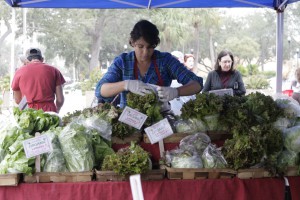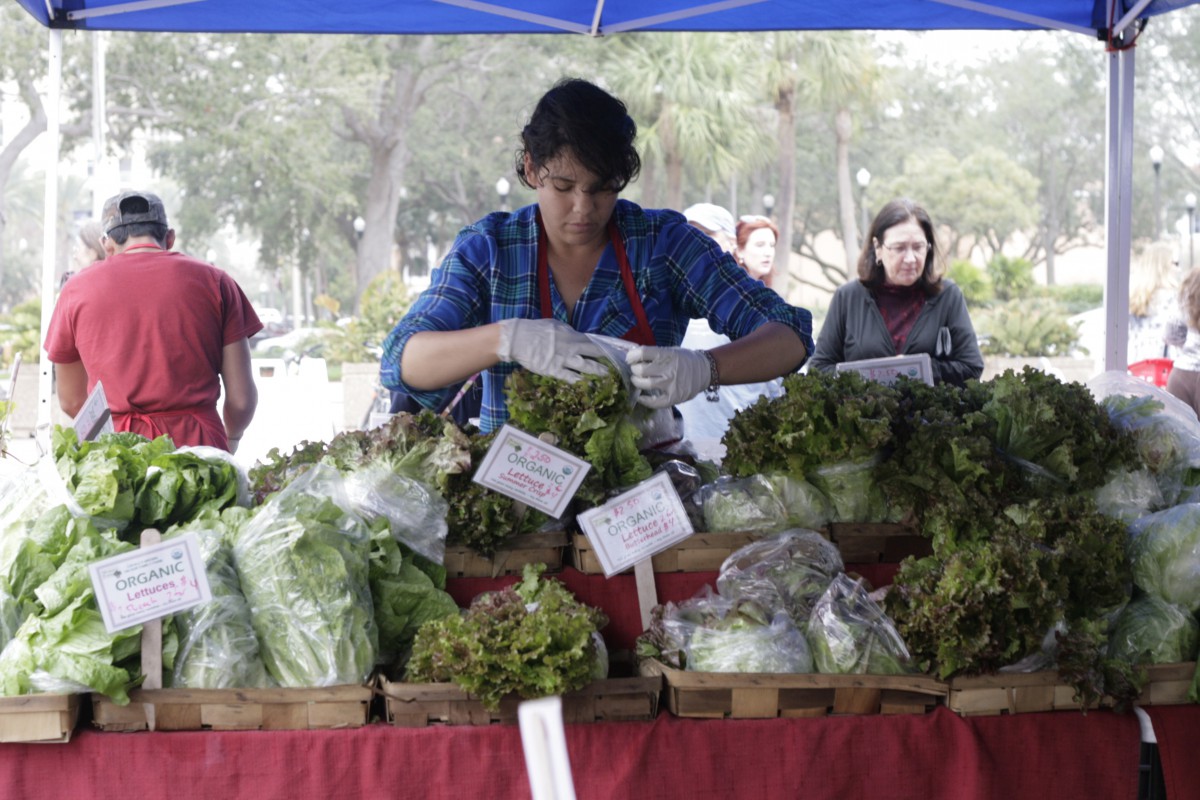 You see it everywhere in supermarkets these days, the exalted “certified organic” label. An assumed promise of healthy and environmentally conscious food fit for a guiltless meal. However, a newly emerged concept now threatens the mythos of organic foods # eating locally.
You see it everywhere in supermarkets these days, the exalted “certified organic” label. An assumed promise of healthy and environmentally conscious food fit for a guiltless meal. However, a newly emerged concept now threatens the mythos of organic foods # eating locally.
According to the U.S. Department of Agriculture, for a product to be labeled as USDA certified organic, it must contain at least 95 percent organic ingredients with the remainder coming from ingredients off a nationally approved list.
Grocery stores, such as Whole Foods Market, have done much to promote the idea of organic foods as healthier and tasting better while also being better for the environment. However, food writers like Michael Pollan purport these claims are unsubstantiated, and the promotion of organic food at such a level has come at the cost of local suppliers and regional distributors.
In an interview with NPR’s Jon Brooks, Pollan said he felt we were building a “straw man, being that the whole point of organic food is that it’s more nutritious.” Pollan also admitted he, a staunch supporter of the organic movement, tends to “favor local food, whether it’s certified organic or not.”
Pollan isn’t the only modern foodie disillusioned by society’s focus on organic eating.
During an Oct. 2013 cooking demonstration at the Museum of Fine Arts in St. Petersburg, chef and cookbook author Pierre Thiam opted to substitute the salmon from one of his recipes with locally sourced grouper because he feels local sourcing is “absolutely” more important than focusing on organics.
“That organic salmon from Alaska wouldn’t be as good as the grouper we had today,” Thiam said. “Organic is important, but it shouldn’t be a religion.”
At its heart, organic food has environmental advantages from not using artificial fertilizers, pesticides or growth hormones. Ideas about its nutritional benefits or better taste are controversial and highly debated.
Many Tampa Bay area chefs have made great strides in order to focus on locally sourced ingredients. Greg Baker, chef and owner of Seminole Heights restaurant the Refinery, gets most of his food through the Suncoast Food Alliance, a network of farmers within a 100-mile radius of Sarasota. Weekly, he introduces new menus based on what is available from those farmers.
“I would rather have something that was picked today hitting my menu tomorrow that’s nutrient dense, has a low carbon footprint and is ultimately more delicious, and carries actual food value, than worry about, sure, that’s an organic lemon that was picked two weeks ago,” Baker said.
Baker acknowledges that using best management practices # even if you’re using conventional methods of growing # ensures there is not a monoculture, the soil is not depleted and that, in 40 years, they will not have wiped out any useful residual nutrient.
Tampa’s Café Dufrain has also committed itself to local sourcing, comprising its menu of at least 75 percent sustainable, organic or local foods.
In St. Petersburg, Ben Harris of the Spot Grill recently revamped his entire menu to include fresher and locally sourced ingredients.
Through other efforts, the Art Institute of Tampa’s culinary program is developing workshops on sourcing food locally. Worden Farm in Punta Gorda currently offers workshops on organic gardening in the home and preserving fall harvests throughout the summer months.
With cooler weather here, farmers markets, like the Saturday Morning Market in St. Petersburg where Eve Worden, owner of Worden Farm, offers her harvest to the public, are popping up all over the Bay area. Such markets offer a direct connection between producer and consumer, which builds communal relationships, an often overlooked aspect of smart eating.
At the markets, farms like Worden’s offer the advantage of produce that is 100 percent organic as well as locally sourced.
The downtown St. Petersburg Publix, just blocks from the Saturday Morning Market, offers a package of organic romaine lettuce (roughly one head) grown and shipped from California for $4.29. On the same day at the market, Worden was selling her locally grown organic lettuce for $2.50 per head. Worden loves interacting with her community and said she uses the direct connection with her consumers to keep her prices down.
Worden doesn’t eat salads in the summer because the produce is not available here.
“When I see all that packaged stuff in the store, and it’s all dead, I just can’t,” she said. “I can’t when I’m used to this (her produce). I mean, just look at how vibrant the colors are. That’s nutritious food.”
Ultimately, food isn’t about the label, Worden explained. It’s about understanding priority and the food choices you’re making.
Go local: The Saturday Morning Market is held from 9 a.m. to 2 p.m. every week at First Avenue S. and First Street S., in the parking lot next to Progress Energy Field. Vendors offer breakfast and lunch options as well as produce and other goods to take home.
news@crowsneststpete.com




I’m sure the fact that its almost impossible to get rich being a local only producer has anything to do with it.
I will produce local only when all the locals are buying from me only. Otherwise, they can grow their own.